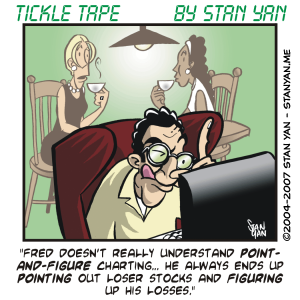If you’re like most traders, you’ve made trades that you have regretted. Perhaps you misjudged the markets or acted on impulse, but all you knew, in the end, was that you lost money, and you wished you hadn’t. It may be hard to believe, but it is possible that you may have planned to fail. You may have covertly made a plan to sabotage your efforts.
Dr Alan Marlatt, a prominent psychologist at the University of Washington, has studied the reasons people fail to maintain self-control. Whether it is trying to quit smoking or losing weight, it’s difficult for people to maintain discipline. Many times, people “relapse.” They are successful for a while but soon return to older patterns of behaviour. Trying to maintain control requires planning. People make a series of decisions when trying to maintain control. Many of these decisions are “apparently irrelevant,” but they end up influencing what happens to us.
Consider how Jack, who is trying to save money to build up trading capital, may have set himself up for failure. Jack was paid on Friday at 5 P.M. and made the “apparently irrelevant decision” to deposit his paycheck at the ATM located near his mother’s house on Saturday morning, which happens to be located at the shopping mall.
Although these decisions may have seemed arbitrary to Jack when he made them, you may see that they may have increased the odds that he will spend more of his paycheck than he had planned. The decision to deposit his paycheck at the mall increases the odds that he will walk into a store and make an impulse buy. In addition, making the deposit in the morning gives him the rest of the day to spend money. It’s possible that Jack may have “covertly” planned to spend money. Without thinking, he may have set himself up to fail.
Consider how he might have planned things differently so as to ensure that he didn’t spend any of his paychecks. He could have deposited his paycheck after work at an ATM far from convenient shopping where he might impulsively spend money. The next day, he could leave his ATM card at home and ensure that he could control his spending. He may have had to drive a few miles out of his way, but this minor inconvenience would ensure that he did not spend his paycheck. The general idea is to plan your life in such a way that you increase the odds that you will maintain self-control. Why put yourself in situations that may thwart your plans?
This framework can be used to explain how a trader may put on a losing trade. Before you put on a trade, you make a set of apparently irrelevant decisions. You may think they have nothing to do with executing or monitoring a trade, but they do, whether you consciously know it or not. If you decide to party too hard the night before a trade, you may be too tired to concentrate.
If you decide to meet up with a friend who goads you into bragging about your trading plans, you may feel uneasy about losing the next day, and the added stress may adversely influence your ability to put on the trade while in an optimal state of mind. You may spend a little too much money on the night before the trade and feel that you have to make extra money the next day to make up for your lavish spending. Each of these decisions may seem irrelevant but they may impact your trading performance. Why do we make such decisions? For some people, such decisions are made without thinking.
Others, however, may “unconsciously” set themselves to fail. Regardless of one’s motives, these decisions matter. Rather than put yourself in situations that may increase your odds of failure, it’s wise to anticipate situations that may encourage you to trade on impulse and avoid those situations. Trading is difficult enough without you trying to sabotage yourself. The more you can set yourself for success, the better.


